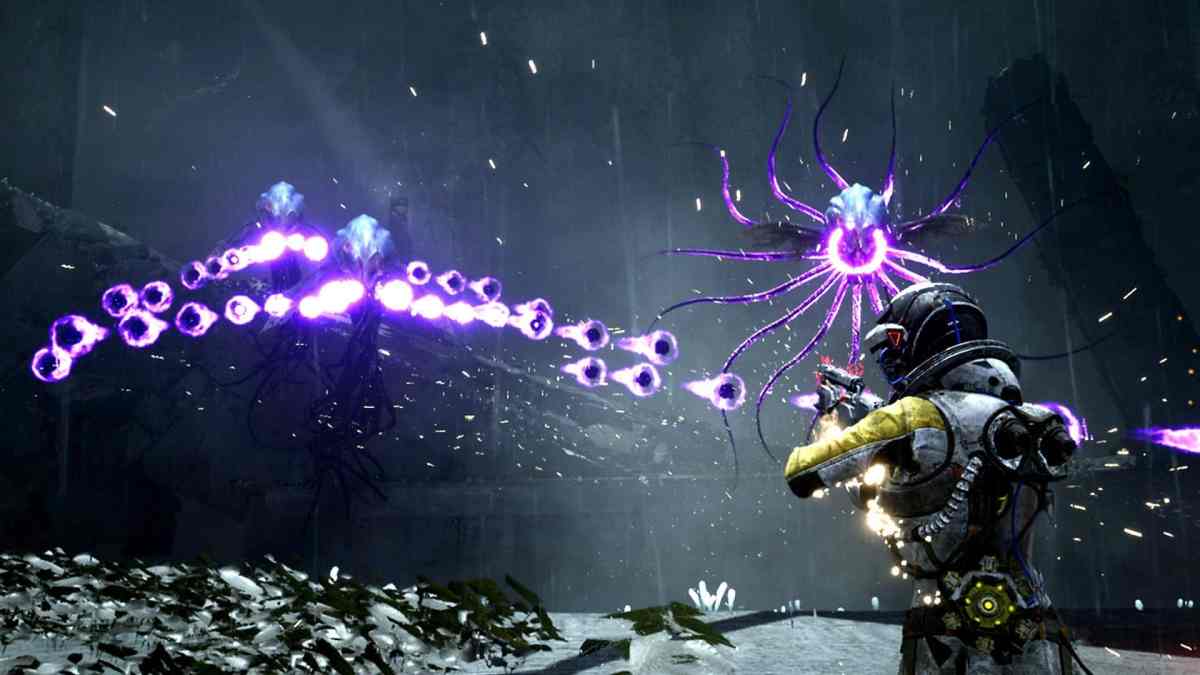Games based on time loops, where the protagonist is caught in a repeating cycle of events, are having something of a moment. Deathloop, Twelve Minutes, The Forgotten City, Returnal, Outer Wilds, Minit — to name only a few relatively recent or upcoming titles — all feature time loops.
One reason for this popularity is no doubt due to economies of scale. A repeating loop makes for a longer experience with fewer assets. It may also be linked to the popularity of roguelikes — games where the player goes back to the start of the game after dying instead of respawning at a checkpoint or loading an earlier save. Indeed, as Returnal demonstrates, time loops and roguelikes may complement each other.
Time loop games also come closer than more linear titles to solving the perennial problem of ludonarrative dissonance, or the possible tension between the gameplay and the narrative. Most players will inevitably screw up their run through a game, necessitating a reload, respawn, or restart. If the game has a linear narrative, where the protagonist is ultimately trying to get from A to B, then these gameplay interruptions to the narrative might feel jarring. A time loop attempts to solve this problem by building repetition into the narrative; restarting the game becomes part of both the gameplay and the story.
The trouble is that repetition is a double-edged sword. The psychologist and economist Daniel Kahneman in his bestseller Thinking, Fast and Slow notes that repetition brings a feeling of familiarity and comfort. However, as we might also expect, too much repetition leads to boredom. The balance is difficult to get right. Different people get bored by different things at different rates, so attrition when doing repetitive tasks will vary from person to person.

The problem for time loop games is that, even in the case of a flawless playthrough, there is a minimum number of loops the player has to repeat to get to the ending. It stands to reason that, if that number is higher than the player’s general tolerance for repeating a task, they will get bored.
Anecdotal as it may be, this bears out in my experience. The Forgotten City has so far been my favorite game of the year, but even so I grew tired of its time loops towards the end of my eight hours or so with the game. Outer Wilds, despite its meticulously crafted solar system and emphasis on mystery, exploration, translation, and big existential questions, frustrated me with its final few hours in the run-up to the epilogue. Twelve Minutes, for all the intriguing backstories of its characters, eventually became an unpleasant cycle of home invasions and repeated dialogue.
The problem is exacerbated by the fact that many playthroughs of these games won’t be flawless, raising the number of repetitions and the possibility of boredom. For instance, even after I had figured out exactly what I needed to do to get past the giant predatory Anglerfish in Outer Wilds’ Dark Bramble, it still took me several attempts to get it right. Assuming that I needed most of the game’s 22-minute time loop, each failure required a full restart of the loop. After a while, the comfortable familiarity of climbing into my rickety wooden spaceship and cruising through the arresting sights of the solar system turned to resentment and then anxiety that I might mess up another run and have to do it again.

It might seem that the problem is not unique to time loop games. Given the affinities between time loop games and roguelikes, naturally you’d suppose the latter to have an analogous issue with repetition. But that’s not always the case, as at least some roguelikes do not strictly require multiple loops. Unlikely as it might be, it’s possible to beat Hades on the first run, for example.
More importantly, roguelike repetition is qualitatively different to time loops. Outer Wilds, The Forgotten City, and Twelve Minutes are all Rubik’s Cube-type puzzle boxes. They are about figuring out how to sequence a set of actions in a loop or across multiple loops to get the narrative to run through to an ending. Mess up the sequencing and the narrative resets. In contrast, roguelikes are about improving your dexterity as a player and possibly your avatar’s loadout to enable you to get to the end.
Put another way, the setup in games like Outer Wilds, The Forgotten City, and Twelve Minutes is essentially binary: You either get the sequencing of events right, or you don’t, and you keep trying until you do. It’s easy to see how this can get frustrating. In contrast, the roguelike setup is continuous: With each playthrough, you improve how skillful you are at the game, however marginally. As a result, each playthrough should yield at least some sense of progress or achievement.

The roguelike design philosophy is not dissimilar to other games that trade in repetition, perhaps most notably the Dark Souls series. Again, while it is possible to beat a Souls game in a single run, most of us will die repeatedly. However, each attempt should bring a feeling of improved reactions, muscle memory, and tactics. I am a terrible Souls player — it took me more than half a hundred tries to beat Darkeater Midir, for example — but the feeling of getting better, however slowly, was enough to counteract my frustration. In other words, boredom in Dark Souls is avoided not just by integrating cycles of life and death into the core themes of the series, but through the infamous focus on “gitting gud.”
Of course, all of this might just be an elaborate way to admit that I have a low tolerance threshold for repetition. Nonetheless, games face the problem of ensuring repetition does not turn to grind, and due to their emphasis on requiring repetition rather than merely enabling it, time loop games are especially vulnerable to this problem. Perhaps we will just have to solve it incrementally, through repeated attempts at designing the perfect time loop. It would be a fitting way to do it, at least.
